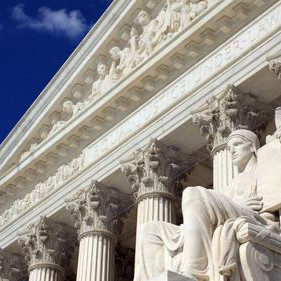Supreme Court Considers Who is a Supervisor Title VII

Yesterday (November 26th, 2012), the Supreme Court heard oral arguments in a case that has drawn the attention of employers and lawyers alike. The question posed to the Court in Vance v. Ball State University (petition for a writ of certiori available here), focuses on when an employee is considered a supervisor under Title VII of the Civil Rights Act. The classification of an employee as a supervisor under Title VII is particularly important in light of the fact that the Supreme Court has held that an employer may be liable for the Title VII violations of its supervisors whether or not it was aware of such violations because of the inherent authority and power supervisors usually have. However the case is decided, it is likely to have a significant impact on employer liability for the discriminatory acts of an employee.
The lower courts that have faced this issue have reached split outcomes. In its decision in the Vance case (available here), the Seventh Circuit Court of Appeals applied a narrow definition of supervisor, focusing on whether the employee accused of discrimination had the power to “directly affect the terms and conditions of the [complaining employee’s] employment” specifically through hiring, firing, demoting, promoting, transferring or disciplining. The First and Eighth Circuit Courts of Appeals have applied similarly narrow definitions of “supervisor.” On the other hand, the Second, Fourth and Ninth Circuit Courts of Appeals have applied broader definitions, aligned with the position of the Equal Employment Opportunity Commission (EEOC). This broader definition of “supervisor” includes not only those employees who can impact another employee’s terms and conditions of employment through hiring, firing or discipline, but also those who have the authority to direct and oversee the other employee’s daily activities.
The Court’s decision in this case is expected in early 2013. Until a decision is published, the current focus on this issue should serve as a reminder to employers about the importance of ensuring that all employees in positions of authority receive proper anti-discrimination and anti-harassment training.
